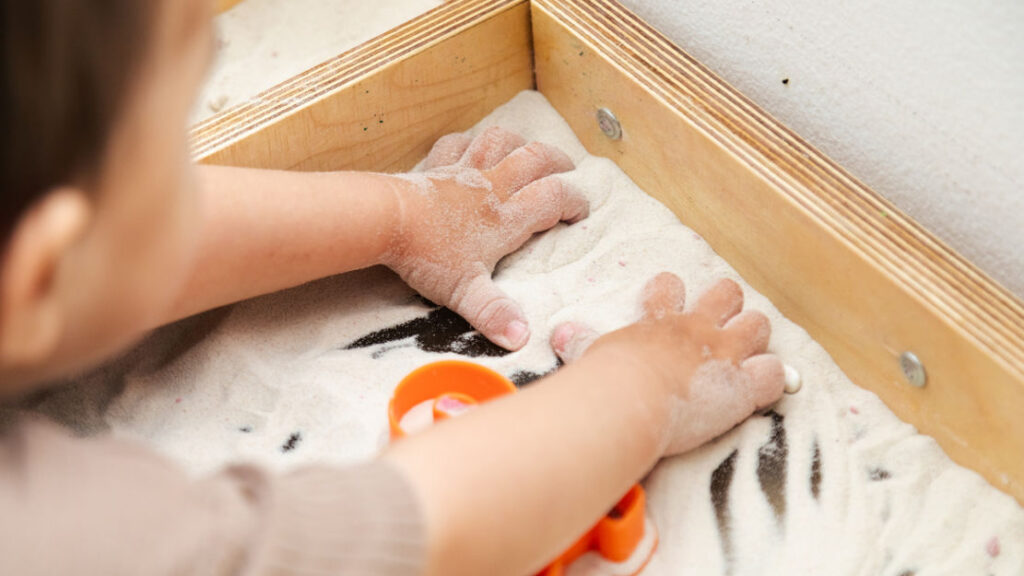
Sensory processing is a vital mechanism that shapes how we interact with the world. Every sound, sight, touch, and movement we encounter is filtered and interpreted by our brain, allowing us to respond and adapt without conscious thought. From feeling the warmth of a hug to balancing on a moving bus, effective sensory processing enables us to connect with others, manage tasks, and navigate our surroundings smoothly. However, for some individuals, this process may not function seamlessly, leading to difficulties in daily activities, learning, and social interactions. In Dubai, Talking Brains Center offers specialized occupational and psychomotor therapy to support children with sensory processing challenges, helping them build essential skills for a more balanced, fulfilling life. In this article, we’ll explore sensory processing, its role in development, and the impact of therapy on children’s ability to thrive.
What is Sensory Processing?
Sensory processing, also known as sensory integration, refers to how the brain receives, organizes, and interprets sensory input from our bodies and the environment. This process allows us to make sense of the world around us, from feeling a warm hug to responding to sounds or balancing on a moving bus. Essentially, sensory processing is the foundation that enables us to perform tasks, develop relationships, and navigate life successfully.
Our brains and bodies work together using specialized systems to register different sensory inputs. These inputs come from our senses: sight, sound, touch, smell, taste, body position (proprioception), balance (vestibular), and internal sensations (interoception). Through this process, we form our perception of the world and respond to stimuli automatically, without much conscious effort.
Why Is Sensory Processing Important?
At birth, children can sense their environment, but they struggle to organize and make sense of these inputs. Over time, with repeated exposure, they gradually learn to process sensory inputs, enabling them to focus on specific sensations and improve their overall performance.
As sensory processing improves, children become more coordinated in their movements, manage multiple sensations simultaneously, and develop emotional regulation. This progress helps them focus on tasks, engage in learning, and succeed in social settings. Efficient sensory processing plays a vital role in their ability to master skills, control their behaviour, and form meaningful connections with others.
Sensory Processing Difficulties
Some children have difficulty processing sensory information, they struggle to regulate their physical, emotional, and cognitive responses to sensory input, leading to challenges in everyday activities, learning, and social interactions. They may either overreact or underreact to stimuli, which can affect their ability to pay attention, follow routines, or engage in social interactions.
Signs of Sensory Processing Issues
Children with sensory processing difficulties might show a variety of behaviours and challenges, including:
Common Indicators of Sensory Processing Challenges
Some specific signs that may indicate sensory processing difficulties include:
The Impact of Sensory Processing Issues
Children with sensory processing challenges often experience difficulties across various areas of their lives. Some key areas that may be affected include:
Why Early Sensory Experiences Matter
Early in life, most experiences are deeply sensory in nature. Infants learn about the world and their caregivers primarily through sensory experiences such as touch and smell. These early interactions are crucial for forming attachments and laying the foundation for psychological well-being. Over time, sensory experiences help children build brain architecture that supports success in school, social settings, and later in life.
Sensory processing isn’t just about navigating physical spaces or tasks—it profoundly impacts emotional development, social skills, and overall well-being.
Conclusion
Sensory processing is a fundamental process that shapes how we experience the world and interact with it. When sensory input is organized and processed effectively, it enables us to thrive in both physical and emotional aspects of life. However, when sensory integration is disrupted, it can create challenges in daily living, learning, and relationships. Recognizing and addressing sensory processing difficulties early can make a significant difference. At Talking Brains Center, we offer specialized occupational and psychomotor therapy to support children in developing the skills they need to overcome these challenges and succeed in their daily lives.